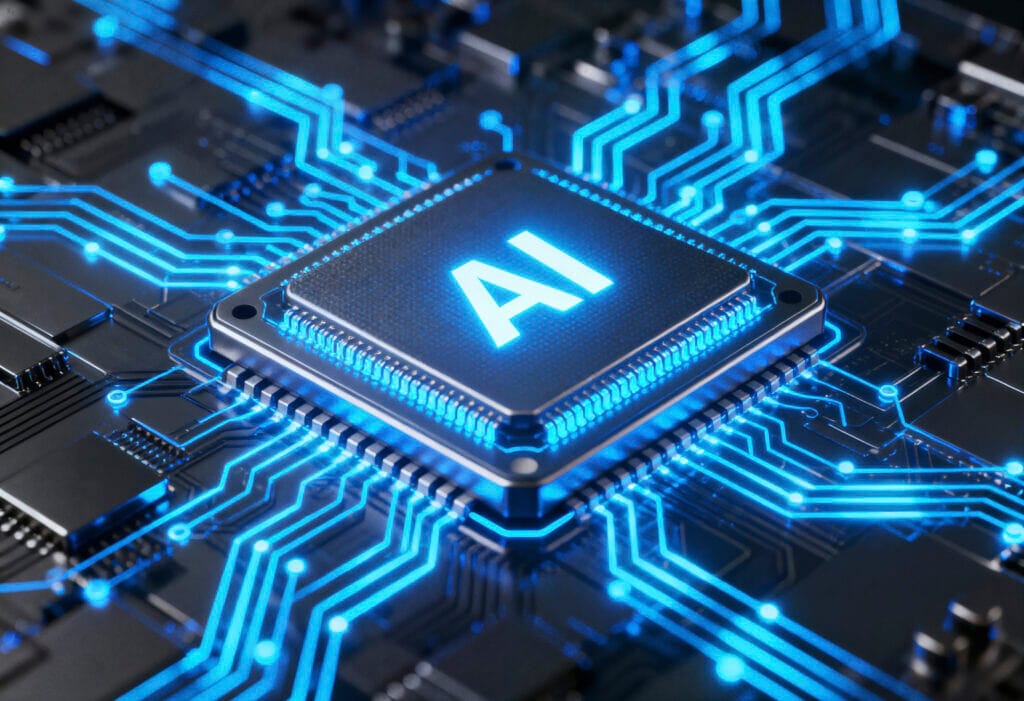FPGA are transforming industries such as healthcare, finance, autonomous vehicles, robotics, and telecommunications by accelerating artificial intelligence (AI) and machine learning (ML) workloads. These technologies rely on complex models that demand high computational power and real-time efficiency.
As CPUs and GPUs reach their limits in balancing performance, latency, and power efficiency, Field-Programmable Gate Arrays have emerged as a powerful alternative. They provide customizable, parallel processing architectures optimized for specific AI and ML tasks, delivering exceptional inference performance.
Their reconfigurability allows developers to fine-tune both hardware and algorithms, achieving faster response times, lower power consumption, and greater adaptability. This makes them ideal for edge and cloud AI applications that require flexibility, scalability, and real-time decision-making.

Understanding FPGA-Based Inference Engines
An inference engine is the component of an AI system that processes input data and generates predictions based on a trained model.
Unlike training, which requires extensive computational resources, inference focuses on delivering rapid results with low latency and power efficiency.
FPGA-Based inference engines leverage the programmable nature of it to customize hardware specifically for AI tasks, providing significant advantages over traditional CPU or GPU solutions.

Advantages of Using an FPGA for AI Inference
Customizable Architecture
It offers a unique advantage in AI inference because they allow designers to tailor the architecture to the specific neural network or machine learning algorithm.
This customization ensures that resources are optimally utilized, reducing bottlenecks and increasing overall performance.
Low Latency and High Throughput
They excel in parallel processing, enabling simultaneous execution of multiple operations.
This capability makes FPGA-based inference engines ideal for real-time applications such as autonomous driving, industrial automation, and video analytics, where low latency is critical.
Energy Efficiency
Unlike GPUs, which consume significant power even when underutilized, FPGAs provide efficient performance by allocating resources precisely where needed.
This energy efficiency is particularly beneficial for edge-AI applications, where power consumption is a limiting factor.
Flexibility and Upgradability
AI models are constantly evolving. These can be reprogrammed to accommodate new models or optimizations without changing the underlying hardware.
This flexibility ensures longer hardware life cycles and easier adaptation to emerging AI techniques.

Key Use Cases of FPGA-Based AI Inference
Autonomous Vehicles
Autonomous vehicles rely on real-time decision-making from multiple sensor inputs such as cameras, LIDAR, and radar. FPGA-based inference engines process these inputs rapidly, enabling immediate responses for safe navigation and obstacle avoidance.
Healthcare and Medical Imaging
Medical imaging applications require high precision and rapid analysis of large datasets. FPGA-Based solutions accelerate tasks such as image segmentation, feature extraction, and anomaly detection, supporting faster diagnostics and improved patient outcomes.
Financial Services
In high-frequency trading and fraud detection, milliseconds can make a difference. Such AI inference accelerates transaction analysis and anomaly detection, providing real-time insights and enhancing decision-making speed.
Industrial Automation and IoT
Edge devices in smart factories need quick and reliable processing of sensor data. FPGA-Based inference engines handle predictive maintenance, quality control, and robotics applications efficiently while minimizing power consumption.

Challenges and Considerations
While Field-Programmable Gate Arrays provide significant advantages, implementing AI inference engines on FPGAs comes with challenges. Designing and optimizing its architectures for AI workloads requires specialized knowledge of hardware design and parallel computing.
Additionally, development tools and frameworks for FPGA-Based AI inference are evolving but may not be as mature or user-friendly as GPU ecosystems. Careful consideration of these factors is essential to maximize the benefits of FPGA acceleration.

Conclusion
FPGAs are transforming the landscape of AI and machine learning by offering customizable, low-latency, and energy-efficient solutions for inference engines.
Their ability to balance high performance with flexibility makes them a powerful choice for industries seeking to deploy AI applications at scale.
As AI continues to evolve, FPGA-based inference engines are set to play a pivotal role in enabling faster, smarter, and more efficient intelligent systems.


![What is FPGA Introduction to FPGA Basics [2023] computer-chip-dark-background-with-word-intel-it](https://fpgainsights.com/wp-content/uploads/2023/06/computer-chip-dark-background-with-word-intel-it-300x171.jpg)








